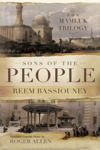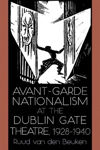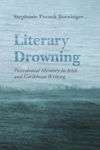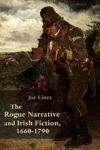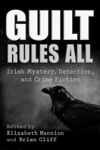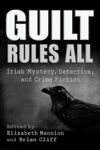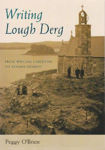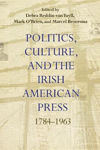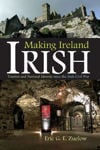Syracuse University Press
View as
Sort by
Display per page
The Playboy of the Western World-A New Version: A Critical Edition
9780815638346
Features the full text of the play, published for the first time, along with a collection of essays exploring the play's themes, cultural significance, critical reception, and the legal case that cut short its successful production run.
€35.05
Sons of the People: The Mamluk Trilogy
9780815611417
A monumental family saga that offers a vivid portrait of Egypt's Mamluk period, one that is at both sweeping in scope and intimate in detail. Set in medieval Cairo, the novel centers on three generations of Egyptians, foreign-born Mamluks, and their descendants as their trials and victories mirror those of their turbulent country.
€54.82
Avant-Garde Nationalism at the Dublin Gate Theatre, 1928-1940
9780815636250
In 1928, Hilton Edwards and Micheal mac Liammoir founded the Dublin Gate Theatre. In examining an extensive corpus of archival resources, Van den Beuken reveals how the Gate became a site of avant-garde nationalism in the Ireland's tumultuous first post-independence decades.
€71.76
Literary Drowning: Postcolonial Memory in Irish and Caribbean Writing
9780815636724
The first book of its kind, Literary Drowning explores depictions of the drowned body in twentieth-century Irish and Caribbean postcolonial literature, uncovering a complex transatlantic conversation that reconsiders memory, forgetfulness, and the role that each plays in the making of the postcolonial subject and nation.
€69.23
FICTIONS OF THE IRISH LITERARY REVIVAL - A CHANGELING ART
9780815623748
This is a critical survey of the fiction and non-fiction written in Ireland during the key years between 1880 and 1920, or what has become known as the Irish Literary Renaissance. The book considers both the prose and the social and cultural forces working through it.
€42.05
Memory Ireland: Volume 2: Diaspora and Memory Practices
9780815632979
Ireland's status as an island nation with a history of emigration has meant the development of a body of diasporic cultural memory. This book opens new pathways into the body of Irish cultural memory, demonstrating time and again the ways in which memory is supported by the negotiations of individuals within wider cultural contexts.
€37.23
The Rogue Narrative and Irish Fiction, 1660-1790
9780815637141
Investigates why writers during the long eighteenth-century so often turned to the rogue narrative to discuss Ireland. With consideration for themes of conflict, migration, religion, and gender, Lines offers up a compelling connection between the rogue themselves and the ever-popular rogue narrative in this early period of Irish writing.
€28.29
Guilt Rules All: Irish Mystery, Detective, and Crime Fiction
9780815636731
Irish crime fiction, long present on international bestseller lists, has been knocking on the door of the academy for a decade. With a wide range of scholars addressing some of the most essential Irish detective writing, Guilt Rules All confirms that this genre has arrived.
€72.05
Guilt Rules All: Irish Mystery, Detective, and Crime Fiction
9780815636830
Irish crime fiction, long present on international bestseller lists, has been knocking on the door of the academy for a decade. With a wide range of scholars addressing some of the most essential Irish detective writing, Guilt Rules All confirms that this genre has arrived.
€27.40
WRITING LOUGH DERG
9780815630982
Aims to show how a discrete tradition of writing about Lough Derg helped contemporary Irish poets rescue, metaphysical inquiry from the grip of nationalism. Surveying literary treatments of Lough Derg, this work addresses the role of spirituality in an increasingly cosmopolitan, postmodern, post-Catholic Ireland.
€28.23
Politics, Culture, and the Irish American Press: 1784-1963
9780815636922
Offering a fresh perspective, this volume traces the rich history of the Irish American diaspora press, uncovering the ways in which a lively print culture forged significant cultural, political, and even economic bonds between the Irish living in America and the Irish living in Ireland.
€76.38
Making Ireland Irish: Tourism and National Identity since the Irish Civil War
9780815632252
Offers an account of the evolution of the Irish tourist industry over the twentieth century. This book examines how a small group of tourism advocates, inspired by tourist development movements in countries such as France and Spain, worked tirelessly to convince their Irish compatriots that tourism was the secret to Ireland's success.
€37.56




